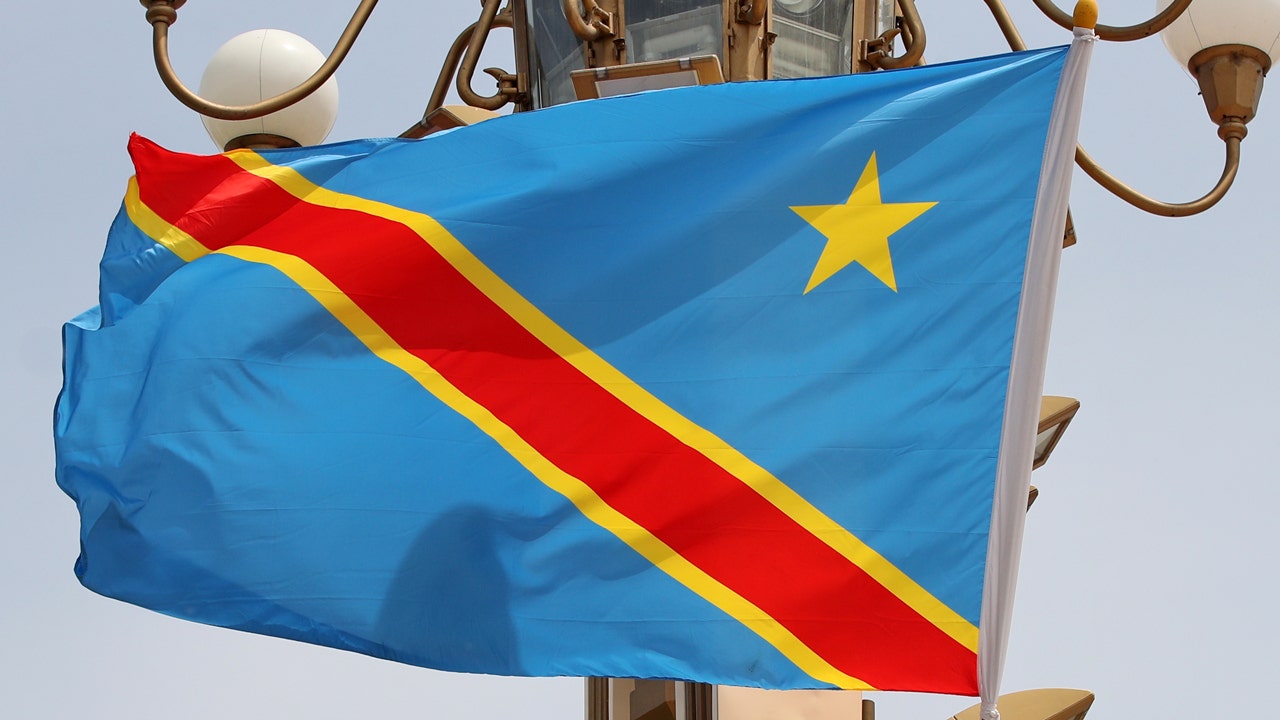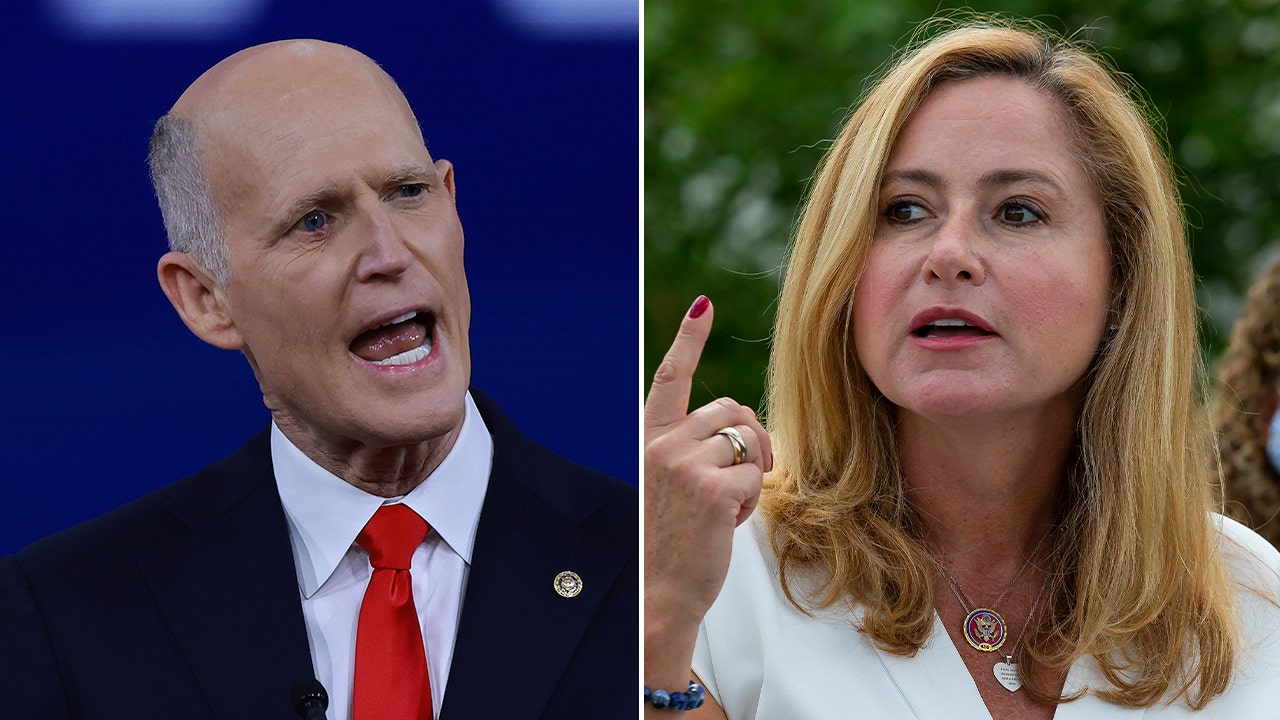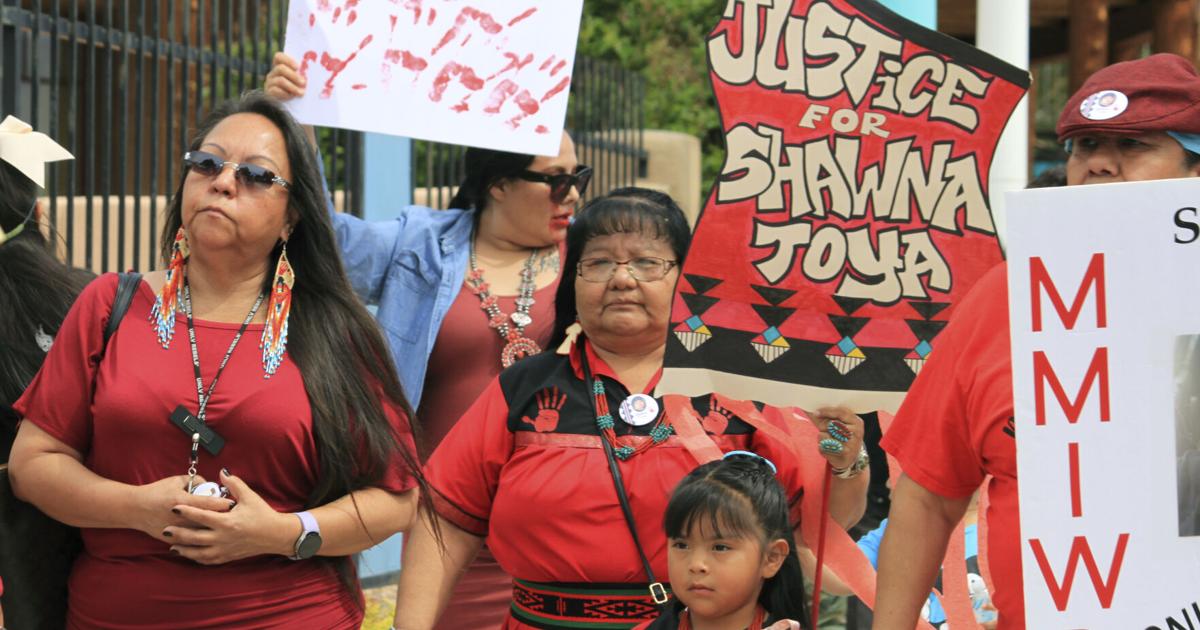World
Indonesian presidential hopefuls are trying social media, K-pop to win young voters. Will it work?
JAKARTA, Indonesia (AP) — Seventeen-year-old Naima Khairiya Ismah started being bombarded by social media posts from candidates for Indonesia’s presidential election on before she’d even given voting any thought.
As three candidates vie to replace popular but term-limited President Joko Widodo in an election later this month, they’ve been aggressively seeking millennials and Gen Z voters. People between the minimum voting age of 17 and the age of 43 make up about 55% of the country’s 205 million eligible voters.
Candidates are reaching out through the apps young voters use, the K-pop music many love, and even video gaming events.
“As young people, we can’t meet the candidates in person,” said first-time voter Ismah, chatting after class outside her Jakarta high school. “The easiest way to know them is through social media platforms, which is very effective.”
The candidates — former defense minister Prabowo Subianto, 72; governing party candidate Ganjar Pranowo, 55; and former Jakarta governor Anies Baswedan, 54 — are all from Indonesia’s conservative, male-dominated political scene. But their campaigns have been stressing issues that matter to young people: job opportunities, climate change and institutional corruption.
Polls show Subianto well ahead of the other two, though perhaps not with the majority needed to avoid a run-off. Despite being the oldest candidate, his running mate is the youngest: 36-year-old Surakarta mayor Gibran Rakabuming Raka, who also happens to be the sitting president’s son.
Their lead comes primarily from younger voters.
A December survey by the Indikator Politik Indonesia agency showed all three candidates virtually tied in support among voters aged 56 or older, but Subianto clearly ahead in every younger age category.
Subianto was the first candidate to pursue youth support, with social media and video billboard campaigns featuring Pixar-style animated depictions of himself and his running mate. They’re meant to soften the image of the gruff-talking former general, who’s been accused of past human rights abuses, which he has denied.
Last month, Raka showed up at the popular Mobile Legend Championship e-sport tournament in Jakarta to appeal to young gamers.
K-pop has also been playing a role in the contenders’ campaigns.
South Korean bands are incredibly popular in Indonesia, where its huge fanbase has organized behind political causes, organizing online protests against a controversial law and a recent fundraiser for Palestinians caught amid the Israel-Hamas war.
Subianto’s Gerindra Party held a lottery for free tickets to see the popular South Korean girl group BLACKPINK, asking entrants to take a photo in front of a Subianto billboard and post it to Instagram or X, formerly Twitter.
Chong Sung Kim, a parliamentary candidate for the Golkar party has adopted “K-pop” as his campaign slogan, saying it stands for “Kredible, Professional, Objective and Peduli,” the last of which is Indonesian for “caring.” The Golkar party has also endorsed Subianto for president.
Kim, an immigrant from South Korea, has also promised to try and bring more K-pop stars to Indonesia and lower ticket prices for their concerts, as well as build ties with his home country for collaboration on education and more job opportunities for Indonesian youth.
“People in Jakarta are very familiar with the term K-pop. They hear it every day. It is catchy and and easy to understand” Kim told The Associated Press.
It’s not a surprise to see politicians leverage K-pop for votes, said Karlina Octaviany, a millennial longtime fan and digital anthropologist.
“It is important to tap into the biggest online community in the world if you want to win,” she said.
Supporters of Baswedan have also looked to capitalize on K-pop culture, with the popular X account @aniesbubble posting about his campaign activities in Korean. The account claims not to be part of the contender’s campaign, but this couldn’t be independently verified and messages to the user went unanswered.
Also last month, Baswedan made a live appearance on TikTok, where supporters compared him to a K-pop star and coined the Korean nickname “Park Ahn Nice.”
With so much emphasis on trying to win K-pop lovers, primarily young and female, Octaviany said it was vital that the fans not lose sight of the issues when voting and even after the election.
“We have to remain critical, whether our candidate is elected or not, and also look at their performance, track record, and human rights crimes or gender issues,” she said.
That’s what first-time voter Muhammad Fakrezi Syamil is trying to do. The 17-year-old high school student in South Jakarta said he’s trying to look past the glitzy appeals and focus on the issues and track records of the candidates in making up his mind.
“The best predictor of your future behavior is past behavior,” he said. ”So that’s part of my consideration.”
Ismah, the Jakarta high school student, said she wasn’t a K-pop fan but wasn’t opposed to politicians using it to reach to young voters.
“Maybe there are young people who initially did not care about politics, but with the presidential and vice presidential candidates using it to campaign, it may get some K-poppers excited and interested in politics,” she said.

World
With help from AI, Randy Travis got his voice back. Here's how his first song post-stroke came to be
With some help from artificial intelligence, country music star Randy Travis, celebrated for his timeless hits like “Forever and Ever, Amen” and “I Told You So,” has his voice back.
In July 2013, Travis was hospitalized with viral cardiomyopathy, a virus that attacks the heart, and later suffered a stroke. The Country Music Hall of Famer had to relearn how to walk, spell and read in the years that followed. A condition called aphasia limits his ability to speak — it’s why his wife Mary Travis assists him in interviews. It’s also why he hasn’t released new music in over a decade, until now.
“What That Came From,” which released Friday, is a rich acoustic ballad amplified by Travis’ immediately recognizable, soulful vocal tone.
Cris Lacy, Warner Music Nashville co-president, approached Randy and Mary Travis and asked: “‘What if we could take Randy’s voice and recreate it using AI?,’” Mary Travis told The Associated Press over Zoom last week, Randy smiling in agreement right next to her. “Well, we were all over that, so we were so excited.”
“All I ever wanted since the day of a stroke was to hear that voice again.”
Lacy tapped developers in London to create a proprietary AI model to begin the process. The result was two models: One with 12 vocal stems (or song samples), and another with 42 stems collected across Travis’ career — from 1985 to 2013, says Kyle Lehning, Travis’ longtime producer. Lacy and Lehning chose to use “Where That Came From,” a song written by Scotty Emerick and John Scott Sherrill that Lehning co-produced and held on to for years. He believed it could best articulate the humanity of Travis’ idiosyncratic vocal style.
“I never even thought about another song,” Lehning said.
Once he input the demo vocal (sung by James Dupree) into the AI models, “it took about five minutes to analyze,” says Lehning. “I really wish somebody had been here with a camera because I was the first person to hear it. And it was stunning, to me, how good it was sort of right off the bat. It’s hard to put an equation around it, but it was probably 70, 75% what you hear now.”
“There were certain aspects of it that were not authentic to Randy’s performance,” he said, so he began to edit and build on the recording with engineer Casey Wood, who also worked closely with Travis over a few decades.
The pair cherrypicked from the two models, and made alterations to things like vibrato speed, or slowing and relaxing phrases. “Randy is a laid-back singer,” Lehning says. “Randy, in my opinion, had an old soul quality to his voice. That’s one of the things that made him unique, but also, somehow familiar.”
His vocal performance on “What That Came From” had to reflect that fact.
“We were able to just improve on it,” Lehning says of the AI recording. “It was emotional, and it’s still emotional.”
Mary Travis says the “human element,” and “the people that are involved” in this project, separate it from more nefarious uses of AI in music.
“Randy, I remember watching him when he first heard the song after it was completed. It was beautiful because at first, he was surprised, and then he was very pensive, and he was listening and studying,” she said. “And then he put his head down and his eyes were a little watery. I think he went through every emotion there was, in those three minutes of just hearing his voice again.”
Lacy agrees. “The beauty of this is, you know, we’re doing it with a voice that the world knows and has heard and has been comforted by,” she says.
“But I think, just on human terms, it’s a very real need. And it’s a big loss when you lose the voice of someone that you were connected to, and the ability to have it back is a beautiful gift.”
They also hope that this song will work to educate people on the good that AI can do — not the fraudulent activities that so frequently make headlines. “We’re hoping that maybe we can set a standard,” Mary Travis says, where credit is given where credit is due — and artists have control over their voice and work.
Last month, over 200 artists signed an open letter submitted by the Artist Rights Alliance non-profit, calling on artificial intelligence tech companies, developers, platforms, digital music services and platforms to stop using AI “to infringe upon and devalue the rights of human artists.” Artists who co-signed included Stevie Wonder, Miranda Lambert, Billie Eilish, Nicki Minaj, Peter Frampton, Katy Perry, Smokey Robinson and J Balvin.
So, now that “Where That Came From” is here, will there be more original Randy Travis songs in the future?
“There may be others,” says Mary Travis. “We’ll see where this goes. This is such a foreign territory. There’s likely more on the horizon.”
“We do have other tracks,” says Lacy, but Warner Music is being as selective. “This isn’t a stunt, and it’s not a parlor trick,” she added. “It was important to have a song worthy of him.”
World
A military court sentences 8 Congolese army soldiers to death for cowardice, other crimes

A military court in eastern Congo on Friday sentenced eight soldiers to death for cowardice and other crimes linked to fleeing the battlefield, as the government struggles to contain violence and attacks in the mineral-rich area where many armed groups operate.
In March, Congo lifted a more than 20-year moratorium on the death penalty, stating that those guilty of treason and espionage were able to get away without proper punishment. Human rights organizations criticized the decision.
BOMBING AT REFUGEE CAMP KILLS 5 PEOPLE, INCLUDING CHILDREN, IN EASTERN CONGO
Alexis Olenga, a lawyer for Paluku Olenga, one of the soldiers sentenced to death, said his client had not fled the battlefield because he was arrested in the area of his assignment.
A military court in eastern Congo has sentenced eight soldiers to death for cowardice and other crimes linked to fleeing the battlefield, as the government struggles to contain violence and attacks in the mineral-rich area where many armed groups operate. (Photo by Wang Xin/VCG)
“This is a monstrous decision, I believe we must immediately challenge it before the high military court,” he told The Associated Press.
The military court in Goma, the provincial capital of North Kivu, acquitted three other soldiers of all charges and released them.
Moïse Hangi, a civil society activist, told the AP that “instead of repairing our security apparatus, these kinds of decisions will increasingly weaken our army and make those on the lines of defense more fearful.”
The decades-long conflict in eastern Congo has produced one of the world’s worst humanitarian crises, with over 100 armed groups fighting in the region, most for land and control of mines with valuable minerals. Some are fighting to try to protect their communities.
Many groups are accused of carrying out mass killings, rapes and other human rights violations. The violence has displaced about 7 million people, many beyond the reach of aid.
World
Stand-in Jose Raul Mulino wins Panama presidential race

The stand-in candidate for popular ex-President Ricardo Martinelli has promised to boost the economy.
Jose Raul Mulino, a stand-in for a former president banned from running, has won the country’s presidential elections.
Authorities unofficially called the race late on Sunday after three of Mulino’s closest competitors conceded defeat. The former security minister, who was a late entrant to the race after his mentor President Ricardo Martinelli was removed from power after being convicted of corruption, secured more than a third of the votes cast in the country of 4.4 million people.
At stake for the new leader is the Central American country’s woes with government corruption, a severe drought that has affected maritime traffic in the economically important Panama Canal, as well as US-bound migrants passing through Panama’s jungles in droves.
“Mission accomplished,” Mulino said after the early results were released. “This is perhaps the most important date of my life, and the greatest responsibility of a Panamanian falls on my shoulders and my family to lead the destiny of the nation.”
Running on the ticket of the Achieving Goals and Alliance parties, the 64-year-old had led opinion polls ahead of the vote as he played up his connections to Martinelli, who was initially his running mate.
The popular ex-president, who oversaw a booming economy from 2009 to 2014, was set to run with Mulino as his deputy. However, he was barred due to a money laundering conviction.
The firebrand politician still dominated much of the race, campaigning for Mulino from inside the Nicaraguan embassy, in which he took refuge on February 8 after receiving political asylum.
Mulino acknowledged Martinelli after his win, saying: “When you invited me to be vice president, I never imagined this.”
More than 77 percent of three million eligible voters cast their ballots for a new president, parliament and local governments for the next five years.
Anticorruption candidate Ricardo Lombana trailed Mulino in second place, ahead of former President Martin Torrijos and former chancellor Romulo Roux. The three conceded defeat on Sunday evening.
Power behind the throne
Mulino, who will serve as head of state and prime minister, for a single five-year term, is set to take office on July 1.
A last-minute Supreme Court decision had validated his bid to stand in for Martinelli after the former president lost an appeal against his conviction.
Mulino’s candidacy had been challenged because he had not won a primary vote or picked a running partner as required under Panama laws.
But the court dismissed that complaint in a ruling welcomed by Martinelli, whose government oversaw an infrastructure boom, including a widening of the Panama Canal and construction of Central America’s first metro line.
Mulino has promised a return to strong economic growth. Many believe ex-president Martinelli will lead the country from behind the scenes.
Voters were highly concerned about corruption and the economy. The term of outgoing President Laurentino Cortizo of the majority Democratic Revolutionary Party (PRD) was marred by allegations of widespread official corruption, declining foreign investment and high public debt.
Last year, the country was roiled by protests, targeting a government concession for Canadian miner First Quantum to continue operating the Cobre Panama copper mine.
Critics say that the mine endangers water sources; a particularly sensitive issue in Panama currently. Drought has effectively handicapped trade transit through the Panama Canal.
The country also faces high income inequality, with unemployment close to 10 percent, and gross domestic product (GDP) growth is forecast to slow from 7.3 percent in 2023 to 2.5 percent this year, according to the International Monetary Fund.
Mulino will also have to tackle migration issues. Some half a million migrants have streamed through the Darien Gap between Colombia and Panama. Activists warn that they face the threat of exploitation and physical danger.
-

 Politics1 week ago
Politics1 week agoColumbia University’s policy-making senate votes for resolution calling to investigate school’s leadership
-

 News1 week ago
News1 week agoBoth sides prepare as Florida's six-week abortion ban is set to take effect Wednesday
-

 World1 week ago
World1 week agoBrussels, my love? MEPs check out of Strasbourg after 5 eventful years
-

 Politics1 week ago
Politics1 week agoHouse Republicans brace for spring legislative sprint with one less GOP vote
-

 News1 week ago
News1 week agoPro-Palestinian campus protesters face looming deadlines and risk of arrest
-

 Politics1 week ago
Politics1 week agoRepublican makes major announcement in push to grow GOP support from once-solid Dem voting bloc
-

 World1 week ago
World1 week agoAt least four dead in US after dozens of tornadoes rip through Oklahoma
-

 Politics1 week ago
Politics1 week agoGOP Rep. Bill Posey won't seek re-election, endorses former Florida Senate President as replacement















